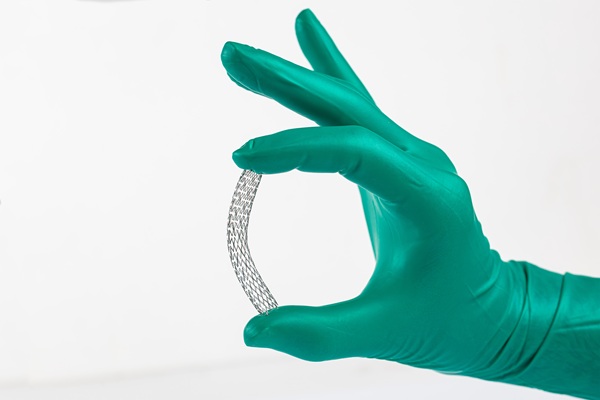Visit a Cardiologist Near Me for Treatment Plans

Are you experiencing concerning symptoms like chest pain, shortness of breath, or irregular heartbeats? When it comes to your heart health, searching "cardiologist near me" allows you to find cardiologists in your area and get the cardiovascular care you need as soon as possible. Prompt medical attention and personalized treatment plans can prevent further health issues and effectively manage a variety of cardiac conditions.
Personalized treatment plans from a cardiologist near me
Each patient is unique, and there is no one-size-fits-all treatment method for cardiovascular issues. Cardiologists prioritize personalized care to address each patient's specific cardiovascular needs, preferences, and risk factors.
Medications
Cardiologists often prescribe medications to manage heart conditions and reduce the risk of complications, such as high blood pressure and blood clots. These medications may include:
- Statins. This type of medication aims to lower cholesterol levels and prevent plaque buildup in the arteries.
- Beta-blockers. These medications help decrease heart rate and blood pressure, reducing the workload on the heart.
- ACE inhibitors or ARBs. This class of medication relaxes blood vessels and lowers blood pressure.
- Antiplatelet. Drugs such as aspirin can prevent blood clots and reduce the risk of heart attack or stroke.
- Diuretics. These medications can help eliminate excess fluid from the body, reducing blood pressure and swelling.
After prescribing a medication, the cardiologist will regularly monitor the dosage to ensure the medication remains effective and the patient does not suffer from intense side effects.
Implant placements
A cardiologist may recommend implantable devices for certain cardiac conditions to improve heart function and prevent life-threatening cardiac events. These devices include:
- Left ventricular assist devices (LVADs). LVADs are mechanical pumps implanted in patients with advanced heart failure to help the heart pump blood more effectively.
- Pacemakers. These devices regulate abnormal heart rhythms by sending electrical impulses to the heart muscle, ensuring a steady heartbeat.
- Defibrillators. Defilitators monitor the heart's rhythm and deliver a shock if a dangerous arrhythmia is detected, restoring normal heart rhythm and preventing sudden cardiac arrest.
These implantable devices help manage various cardiac conditions and improve the patient's overall quality of life.
Angioplasty and stents
Conditions like atherosclerosis can narrow and block vital arteries. Angioplasty and stent placement are minimally invasive procedures that can restore proper blood flow to the heart. During an angioplasty, a cardiologist or cardiac surgeon inserts a catheter with a deflated balloon into the blocked artery and inflates the balloon to widen the artery and improve blood flow.
Sometimes, a stent — a small mesh tube — is inserted to keep the artery open and prevent it from re-narrowing. This minimally invasive procedure can alleviate symptoms of chest pain (angina) and reduce the risk of heart attack.
Bypass surgery
A cardiologist may recommend bypass surgery if the patient has multiple arteries that are blocked as a result of severe coronary artery disease. This procedure involves grafting veins or arteries from other parts of the body to bypass blocked arteries in the heart. By improving blood flow to the heart muscle, bypass surgery can help relieve chest pain, reduce the risk of heart attack, and improve overall heart function.
Bypass surgery is a more invasive treatment method compared to angioplasty or stent placement. However, it can be highly effective in restoring cardiac health and enhancing the overall quality of life for patients struggling with complex coronary artery disease.
Heart surgery
In addition to bypass surgery, cardiologists may recommend other types of heart surgery to address various cardiac conditions. These procedures may include valve repair or replacement, heart transplant, or surgery to repair congenital heart defects. Comprehensive heart surgeries are typically reserved for more severe cases where less invasive treatments have been unsuccessful or are not possible. Cardiologists collaborate with cardiac surgeons to ensure that their patients receive the most appropriate and comprehensive care tailored to their needs.
Find the treatment plan that works for your needs
By searching "cardiologist near me," you have taken a proactive step towards protecting your cardiovascular and overall health. Do not wait for any of your existing symptoms to escalate. Schedule your appointment at our Boynton Beach office today to find the treatment plan that best fits your needs and goals.
Request an appointment here: https://boyntonbeach.floridapremiercardio.com or call Florida Premier Cardiology at (561) 229-1411 for an appointment in our Boynton Beach office.
Check out what others are saying about our services on Yelp: Cardiologist Near Me in Boynton Beach, FL.
Recent Posts
Coronary stent placement is a treatment for coronary artery disease, a buildup of plaque (fat and cholesterol) around the heart's arteries. Along with angioplasty, a stent helps restore blood flow to the heart, relieving symptoms such as chest pain and shortness of breath and helping prevent a heart attack. The following overview of coronary stent…
Heart disease treatment encompasses a range of interventions, from lifestyle changes and medications to surgical interventions. Individuals can manage their condition and improve their quality of life by working with a cardiologist. Successful heart disease treatment starts with the patient having the information they need to make informed decisions about their health.Also known as cardiovascular…
A heart specialist is a doctor specializing in diagnosing and treating cardiovascular conditions. Patients may be referred to one of these doctors for several reasons, from diagnosing a heart health issue to getting cleared for surgery. However, seeing a heart specialist is even more crucial for those either experiencing the signs of heart disease or…
Cardiologists perform angioplasty to open blocked arteries, specifically those caused by coronary disease. This minimally invasive alternative to open heart surgery can restore proper blood flow to the heart and often reverse the fast track to a heart attack. However, learning when one is necessary is crucial for treatment success.Coronary artery disease (CAD) is a…


